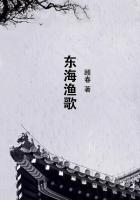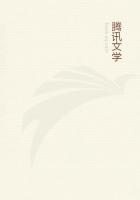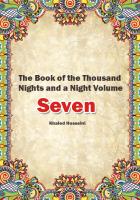In regard to Adonis, his connexion with the boar was not always explained by the story that he had been killed by the animal. According to another story, a boar rent with his tusk the bark of the tree in which the infant Adonis was born. According to yet another story, he perished at the hands of Hephaestus on Mount Lebanon while he was hunting wild boars. These variations in the legend serve to show that, while the connexion of the boar with Adonis was certain, the reason of the connexion was not understood, and that consequently different stories were devised to explain it. Certainly the pig ranked as a sacred animal among the Syrians. At the great religious metropolis of Hierapolis on the Euphrates pigs were neither sacrificed nor eaten, and if a man touched a pig he was unclean for the rest of the day. Some people said this was because the pigs were unclean; others said it was because the pigs were sacred. This difference of opinion points to a hazy state of religious thought in which the ideas of sanctity and uncleanness are not yet sharply distinguished, both being blent in a sort of vaporous solution to which we give the name of taboo. It is quite consistent with this that the pig should have been held to be an embodiment of the divine Adonis, and the analogies of Dionysus and Demeter make it probable that the story of the hostility of the animal to the god was only a late misapprehension of the old view of the god as embodied in a pig. The rule that pigs were not sacrificed or eaten by worshippers of Attis and presumably of Adonis, does not exclude the possibility that in these rituals the pig was slain on solemn occasions as a representative of the god and consumed sacramentally by the worshippers.
Indeed, the sacramental killing and eating of an animal implies that the animal is sacred, and that, as a general rule, it is spared.
The attitude of the Jews to the pig was as ambiguous as that of the heathen Syrians towards the same animal. The Greeks could not decide whether the Jews worshipped swine or abominated them. On the one hand they might not eat swine; but on the other hand they might not kill them. And if the former rule speaks for the uncleanness, the latter speaks still more strongly for the sanctity of the animal. For whereas both rules may, and one rule must, be explained on the supposition that the pig was sacred; neither rule must, and one rule cannot, be explained on the supposition that the pig was unclean. If, therefore, we prefer the former supposition, we must conclude that, originally at least, the pig was revered rather than abhorred by the Israelites. We are confirmed in this opinion by observing that down to the time of Isaiah some of the Jews used to meet secretly in gardens to eat the flesh of swine and mice as a religious rite. Doubtless this was a very ancient ceremony, dating from a time when both the pig and the mouse were venerated as divine, and when their flesh was partaken of sacramentally on rare and solemn occasions as the body and blood of gods. And in general it may perhaps be said that all so-called unclean animals were originally sacred; the reason for not eating them was that they were divine.
4. Osiris, the Pig and the Bull.
IN ANCIENT Egypt, within historical times, the pig occupied the same dubious position as in Syria and Palestine, though at first sight its uncleanness is more prominent than its sanctity. The Egyptians are generally said by Greek writers to have abhorred the pig as a foul and loathsome animal. If a man so much as touched a pig in passing, he stepped into the river with all his clothes on, to wash off the taint. To drink pig's milk was believed to cause leprosy to the drinker. Swineherds, though natives of Egypt, were forbidden to enter any temple, and they were the only men who were thus excluded. No one would give his daughter in marriage to a swineherd, or marry a swineherd's daughter; the swineherds married among themselves. Yet once a year the Egyptians sacrificed pigs to the moon and to Osiris, and not only sacrificed them, but ate of their flesh, though on any other day of the year they would neither sacrifice them nor taste of their flesh. Those who were too poor to offer a pig on this day baked cakes of dough, and offered them instead. This can hardly be explained except by the supposition that the pig was a sacred animal which was eaten sacramentally by his worshippers once a year.
The view that in Egypt the pig was sacred is borne out by the very facts which, to moderns, might seem to prove the contrary. Thus the Egyptians thought, as we have seen, that to drink pig's milk produced leprosy. But exactly analogous views are held by savages about the animals and plants which they deem most sacred. Thus in the island of Wetar (between New Guinea and Celebes) people believe themselves to be variously descended from wild pigs, serpents, crocodiles, turtles, dogs, and eels; a man may not eat an animal of the kind from which he is descended; if he does so, he will become a leper, and go mad. Amongst the Omaha Indians of North America men whose totem is the elk, believe that if they ate the flesh of the male elk they would break out in boils and white spots in different parts of their bodies. In the same tribe men whose totem is the red maize, think that if they ate red maize they would have running sores all round their mouths. The Bush negroes of Surinam, who practise totemism, believe that if they ate the capia? (an animal like a pig) it would give them leprosy; perhaps the capia? is one of their totems.
The Syrians, in antiquity, who esteemed fish sacred, thought that if they ate fish their bodies would break out in ulcers, and their feet and stomach would swell up. The Chasas of Orissa believe that if they were to injure their totemic animal they would be attacked by leprosy and their line would die out.















